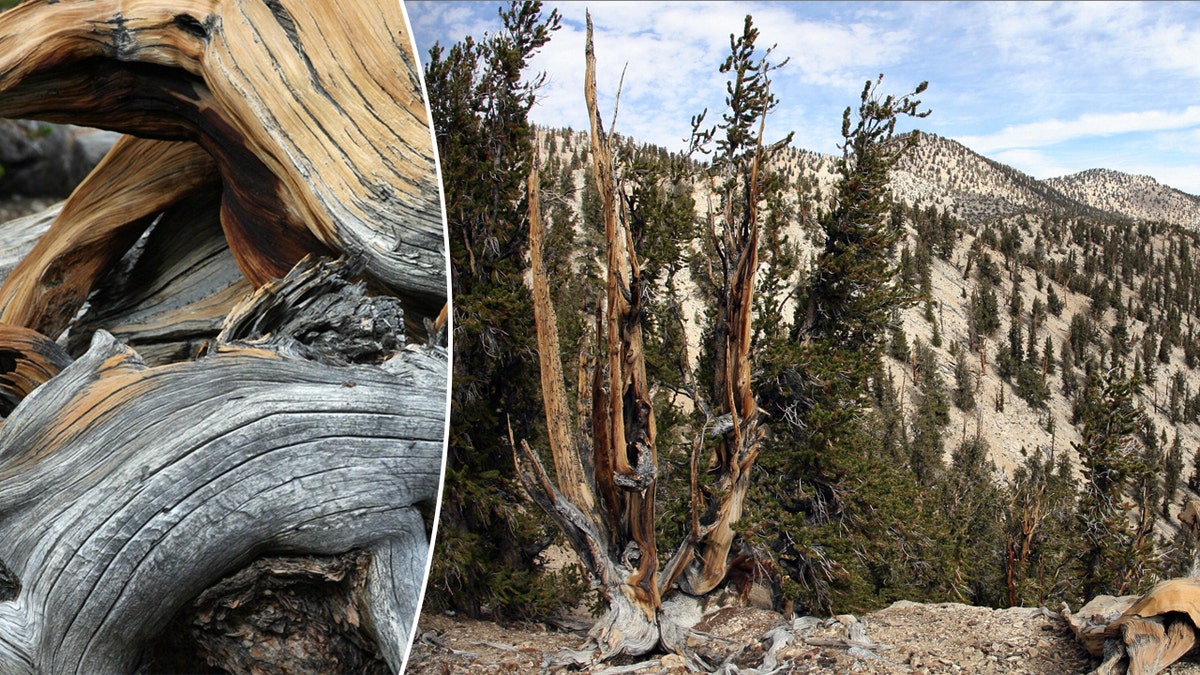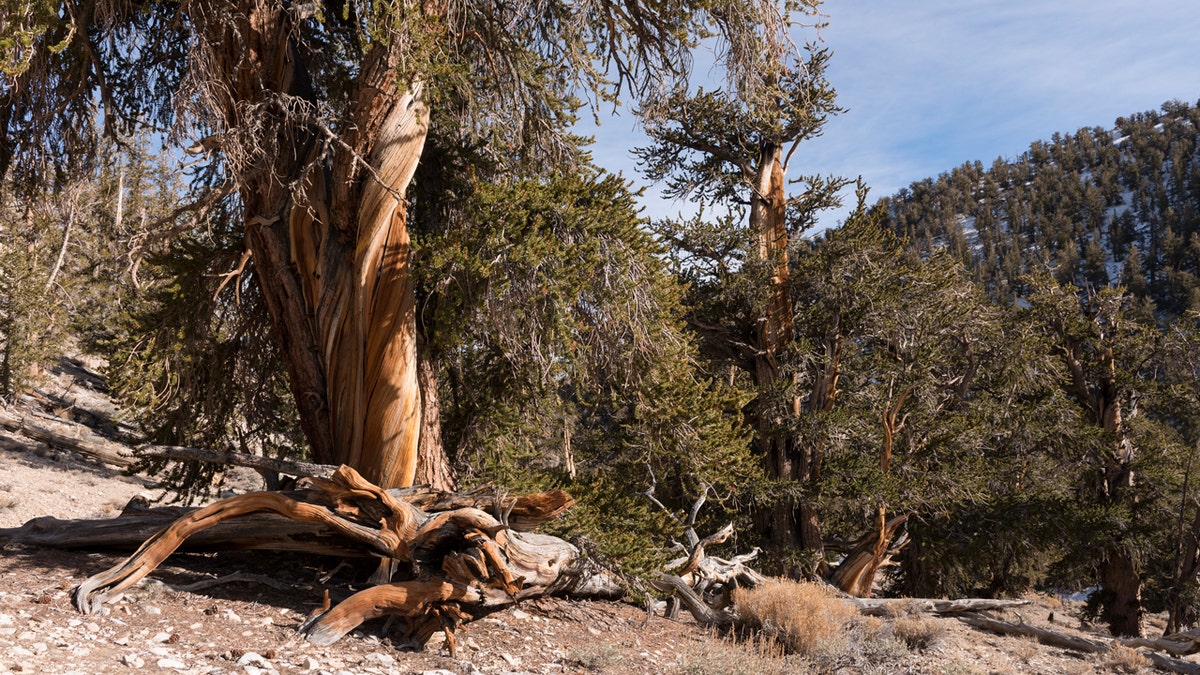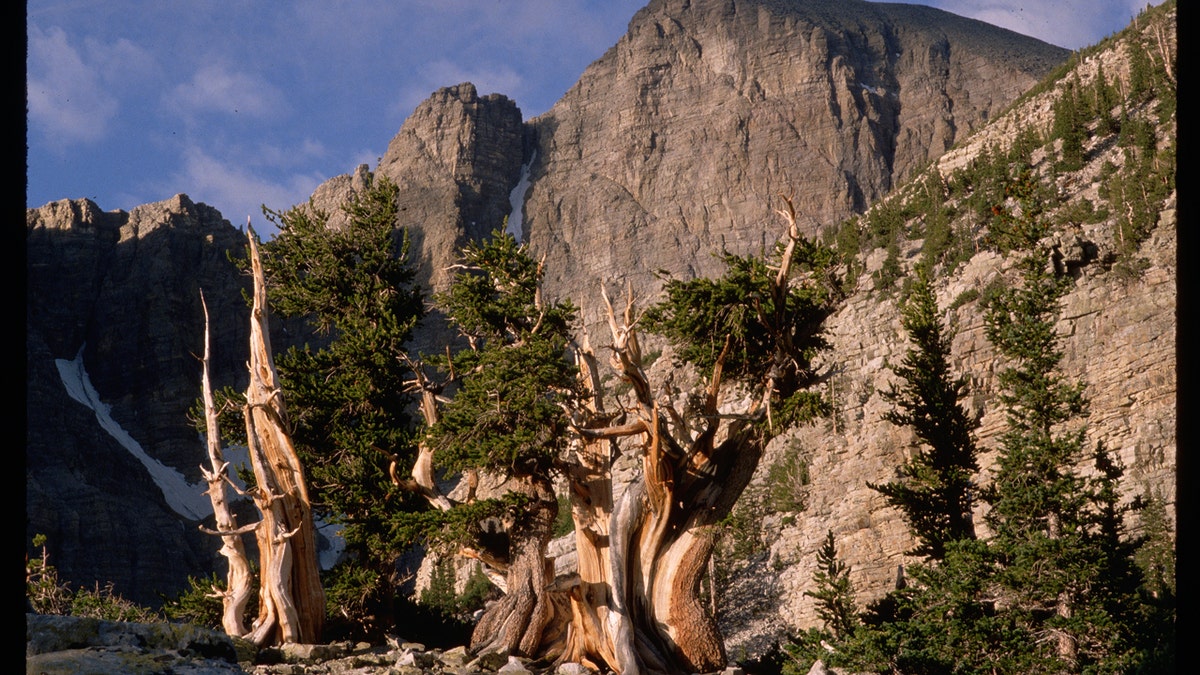Forestry leaders call to ban Bradford pear trees
Assistant professor of forestry David Coyle joins "Fox & Friends Weekend" to discuss the dangers of the tree and the push to invest in more native options.
The oldest tree species is the Great Basin bristlecone pine (Pinus longaeva).
The oldest tree of the species is named Methuselah and is more than 4,800 years old.
The longevity of the Great Basin bristlecone pine can be attributed to factors such as the species' ability to withstand various weather conditions, including intense winds, snow and rain. Its unique, twisted shape comes from the tree's adaptation to these types of intense weather, according to the National Park Service's website.
WORLD'S OLDEST WINE DISCOVERED IN ANCIENT ROMAN BURIAL STATE
Learn more about the Great Basin bristlecone pine and the single oldest tree of the species below.
- How old is the Great Basin bristlecone pine?
- Where can I find the Great Basin bristlecone pine?
- Who discovered the oldest Great Basin bristlecone pine?
1. How old is the Great Basin bristlecone pine?
The oldest Great Basin bristlecone pine is one named Methuselah.
Sources vary on the exact age of the oldest tree. Guinness World Records clocks the tree at 4,856 years old as of 2024.

The Great Basin bristlecone pine is the oldest tree species in the world, with many trees dating back around 4,000 years and the oldest at almost 5,000 years old. (GABRIEL BOUYS/AFP via Getty Images)
Though Methuselah holds the title of oldest in the species, there are several Great Basin bristlecone pines that are over 4,000 years old, according to the U.S. Park Service website.
In addition to the Great Basin bristlecone pine being able to withstand harsh weather, the tree also grows uniquely, a contributor to its longevity.
WORLD'S BIGGEST SPIDER COMES FROM NORTHERN SOUTH AMERICA, CAN MEASURE AS LARGE AS A DINNER PLATE
The tree's roots feed the sections of the tree that are directly above them, according to the National Park Service. This means that if a root dies, only that particular section of the tree that is being fed through that particular root dies along with it and the rest of the tree keeps growing strong.
2. Where can I find the Great Basin bristlecone pine?
The Great Basin bristlecone pine is a very rare species.
The trees can be found in California, Nevada and Utah, according to the National Park Service website.

Great Basin bristlecone pines are very rare and found in only a few states. (Carol M. Highsmith/Buyenlarge/Getty Images)
Great Basin National Park in Nevada is one spot where you can get a close-up look at the ancient trees.
There are three Great Basin bristlecone pine groves located in the park, which are Wheeler Peak, Mount Washington and Eagle Peak, according to the National Park Service.
The Nevada national park offers hikes for all levels as well as scenic drives that are filled with Great Basin bristlecone pines to view.
CLICK HERE TO SIGN UP FOR OUR LIFESTYLE NEWSLETTER
Another national park filled with the ancient tree species is Bryce Canyon National Park in Utah.
To see the Great Basin bristlecone pines in Utah, take a hike on the Fairyland Loop trail or the Bristlecone Loop trail at Rainbow Point, according to the National Park Service.
The Bristlecone Loop is home to the oldest tree in the park, which can be found at Yovimpa Point and is around 1,600 years old, according to the source.

National parks in Utah, California and Nevada are home to the ancient tree species. (Galen Rowell/Corbis via Getty Images)
You can also view trees of the species on the Peekaboo Loop trail and along the Rim Trail.
Inyo National Forest in California is a third spot where Great Basin bristlecone pines can be spotted.
This park, Patriarch Grove specifically, is where the world's largest Great Basin bristlecone pine can be found, according to the U.S. Forest Service.
3. Who discovered the oldest Great Basin bristlecone pine?
The oldest Great Basin bristlecone pine was discovered in 1957 by a researcher named Edmund Schulman, according to Live Science.
The tree was given a proper age by taking cores of other Great Basin bristlecone pines in the area and counting rings, per the source.

Methuselah is the oldest living tree of the Great Basin bristlecone pine species. (Tayfun Coskun/Anadolu Agency via Getty Images)
Before Methuselah, the oldest tree of the species was Prometheus, a tree on Wheeler Peak that was around 4,900 years old when it was chopped down in 1964.
The tree was cut down by a geographer named Donald R. Currey, who was conducting research at the time into ice age glaciology, according to the National Park Service.
For more Lifestyle articles, visit www.foxnews.com/lifestyle
The United States Forest Service gave Currey permission to take core samples from Great Basin bristlecone pines in the area.
CLICK HERE TO GET THE FOX NEWS APP
Later analysis found that the tree cut down by Currey had 4,862 growth rings, according to the National Park Service, but the now-chopped tree was thought to have dated back even further than that.
Methuselah is located in the Inyo National Forest, according to the USDA website, but its exact location remains under wraps by the U.S. Forest Service for its protection.









































